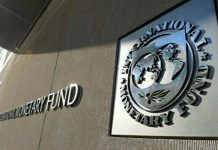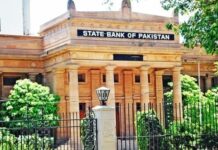ISLAMABAD: Import and consumption-led growth and the resultant overheating of the economy every two to three years tends to cause wider current account and fiscal deficits, and this cycle needs to be done away with to put the economy on a sustainable and export-led growth path, which will be possible only when a national dialogue is initiated on how to boost sectoral output, according to an expert on economy.
“A Charter of Economy is need of the hour with all the stakeholders on board to avoid occasional boom and bust cycles. Fiscal and monetary policies should be evolved and implemented in a way that they do not severely erode the growth and increase the unemployment rate,” stressed Dr. Nasir Mehmood, an economist at the Pakistan Institute of Development Economics (PIDE), while talking to WealthPK.
The PIDE economist said that the stabilising measures almost always forced Pakistan to knock at the doors of IMF for bailout packages, which were approved with some harsh conditions, causing suffering to the common man.
Nasir Mehmood maintained that Pakistan must focus on increasing exports and reducing imports, which was possible through long-term planning to boost industrial and agriculture output.
It is pertinent to mention here that the State Bank of Pakistan’s foreign exchange reserves have dropped by $87 million to $7.81 billion recently thanks to burgeoning imports, a squeeze in dollar inflows, resulting in exchange rate depreciation and widening of current account deficit.
With the fall in SBP reserves, Pakistan’s total liquid foreign reserves have come down by $92 million to $13.52 billion as the reserves of commercial banks showed a slight decline of $4 million to $5.71 billion.
However, the likely revival of the International Monetary Fund (IMF) bailout package is expected to help shore up foreign exchange reserves and strengthen the local currency.
Friendly countries such as Qatar, Saudi Arabia and the United Arab Emirates have also agreed to provide Pakistan with over $4 billion in financing and investments.
Pakistan is set to receive $3 billion from the Qatar Investment Authority, one of the biggest sovereign funds in the world. The funds will help stabilise the foreign exchange reserves and ease the pressure on the exchange rate.
Moreover, Saudi Arabia has also announced plans to contribute $1 billion to Pakistan’s economy.
By the close of the ongoing financial year 2022-23, the foreign exchange reserves are likely to reach $16 billion.
This would also depend on whether Pakistan would adhere to implementing the measures it has agreed with IMF.
Pakistan’s total external financing needs for FY23 are estimated to be around $30 billion, with the country sure to have financing of $37 billion available during the year.
The recent government’s measures to stablise the economy have resulted in lower imports in the month of July FY23, which helped the current account deficit to narrow down 45% to $1.2 billion year-on-year.
Compared with last year, the SBP expects the current account deficit in FY23 to be around 3% of GDP or $10 billion.
-INP




